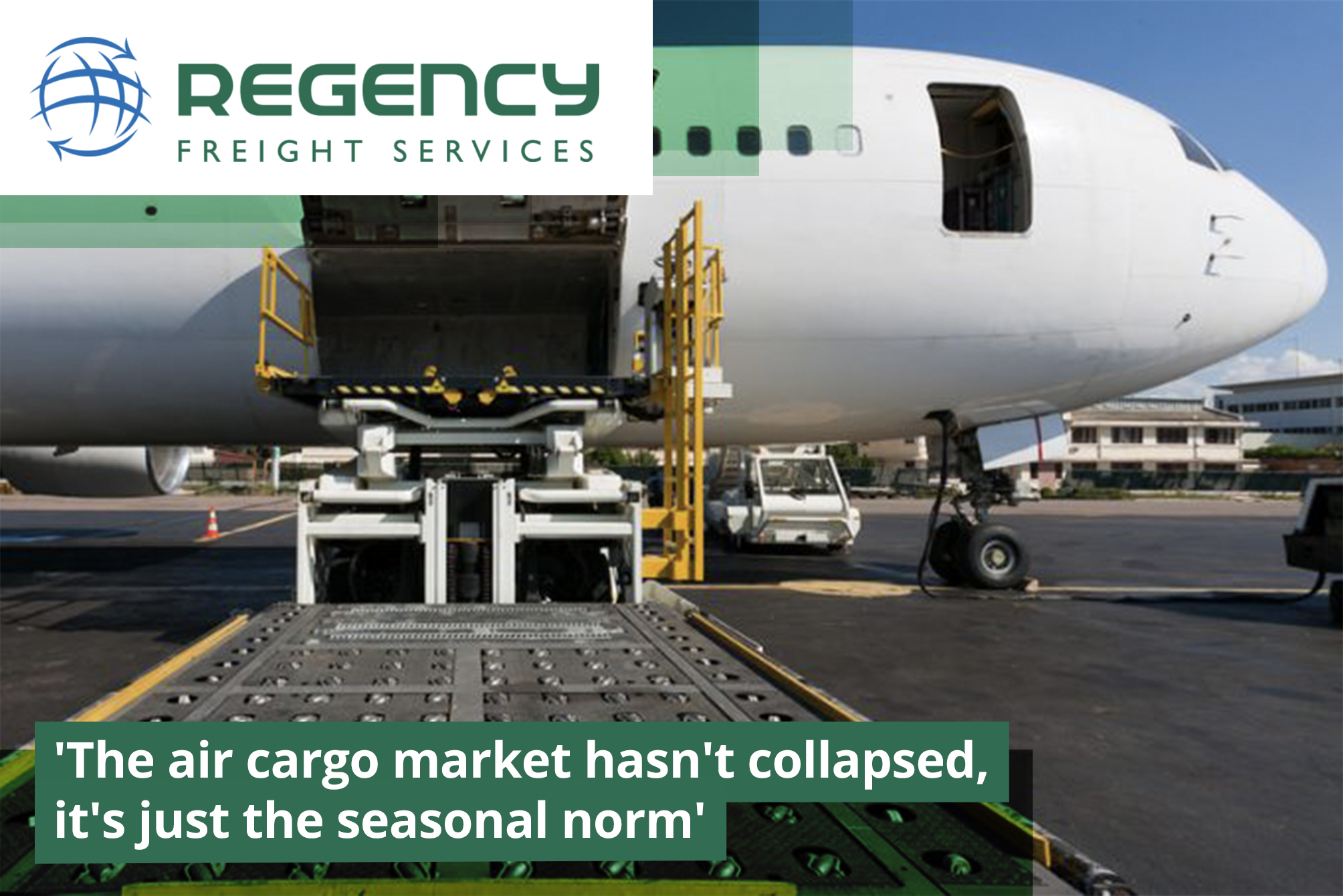'The air cargo market hasn't collapsed, it's just the seasonal norm'28 July 2022
When Shanghai’s lockdown ended most companies expected a surge in cargo and a bounce in airfreight rates, as China attempted to rebuild its export market, This, of course, has not happened. But the question is, why? According to Stifel, writing for the Baltic Exchange, there are four possible explanations – or a mix thereof. First, it said June’s “fuel prices tapered steadily during the month, tempering increases on base rates”. IATA’s jet fuel monitor recorded prices down 6.4% in June, from May, and down 5.4% in Asia and Oceania. Stifel said the fall had “removed upward pressure on fully baked airfreight rates”. Second, noted Bruce Chan, Stifel’s director global logistics, it was June. He said: “We are currently entering the normal late-summer lull before the onset of the holiday peak. So there is a potential that seasonal demand patterns are helping to keep pricing stable.” The third potential explanation is that the manufacturing ramp-up in China is more gradual than expected. Mr Chan added: “Manufacturing PMI in China recovered in May, but was still below trend and in contraction territory.” Some forwarders in China, however, have suggested that exports continued to flow, to some extent, but via hubs other than Shanghai. Fourth and finally, noted Mr Chan: “There’s the possibility that demand is starting to moderate on a longer-term basis. “Are we seeing signs that the recessionary bogeyman has arrived? Airfreight volumes and airfreight rates are likely a leading indicator, in our view, but we don’t have clear evidence to support that thesis. “Annualised US GDP contracted 1.6% in Q1 22, for example, but unemployment and absolute consumer spending figures have been more resilient, and US inventory-to-sales ratios remain near all-time lows. “We don’t and cannot discount the possibility of the fourth scenario. And, while we do expect a broader slowdown at some point in 2023, we believe what is currently impacting rates is shorter-term in nature.” One airfreight forwarder agreed that the demise of the market had been exaggerated, and likely a short-term lull. “Every year you get busy, medium and slack times in air freight. Market is soft, market is congested, market is reasonable … every year – up until 2020 and the pandemic,” he said. “Then it just became peak season all the way through from PPE, to e-commerce, to recovery mode with product, to retail merchandise as shops opened; and all with most of the world’s passenger fleets grounded, so bellyhold cargo capacity supply was devastated. “So what we are seeing now is quite normal – May/June/July are traditionally quiet times for air freight demand. People forget this fact and now it is being reported that the air cargo market has collapsed. It hasn’t – it’s just going through its seasonal soft period.” He pointed out that China to US and Europe were “actually still very busy and rates are rising weekly”. He added: “Charter prices are still very high – unsustainably high, compared to scheduled carriers and capacity, especially with the PAX flights returning on some lanes in droves with holiday season. The dynamics of the past two years have been upset – the sellers’ market is coming to an end on many trades.” The executive added that those forwarders who signed up for long-term charter agreements, but who could find charter costs twice as high as the spot market, would likely dump rates to subsidise the loss. “It’s better to lose $100k than $1m, after all. And then hope the market returns to normal, rates increase and costs can be covered.” By Alex Lennane Source: https://theloadstar.com/ |
|
   |
